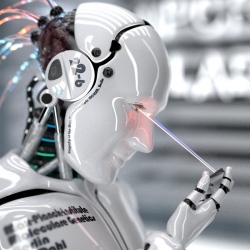
Apple’s move represents an important step in the use of robots in manufacturing. Robots have long been used to build cars, but not so widely used in consumer electronics because these products are more difficult to make.
The main beneficiary of Apple’s move will be Fanuc, the world’s leading robot maker. However, other firms, such as ABB (ABB) and Siemens (SI) may also benefit. Apple is also buying a large number of computerized machine tools. While Apple will own these tools and the robots will be installed in the plants of its leading contractors, Hon Hai and Foxconn.
Apple is not the only consumer electronics giant planning to move to robotic production. Canon, one of the world’s leading camera makers, has just announced that it will shift production of cameras back from China to Japan. The company plans to have a fully robotic plant in operation by 2015. Canon estimates that this could save it $4.82bn over a four-year period.
Canon also plans to develop a new generation of sophisticated vision systems that will enable the robots to handle the delicate task of making lenses and assembling tiny components. Like Apple, Canon plans to use robots to establish a competitive advantage of its rivals.
Apple is likely to sell around $95bn worth of iPhones this year, a number equal to the total sales of personal computers that will be sold in the USA and China. To add more context to that number, consider the following: The iPhone was launched five years ago.
